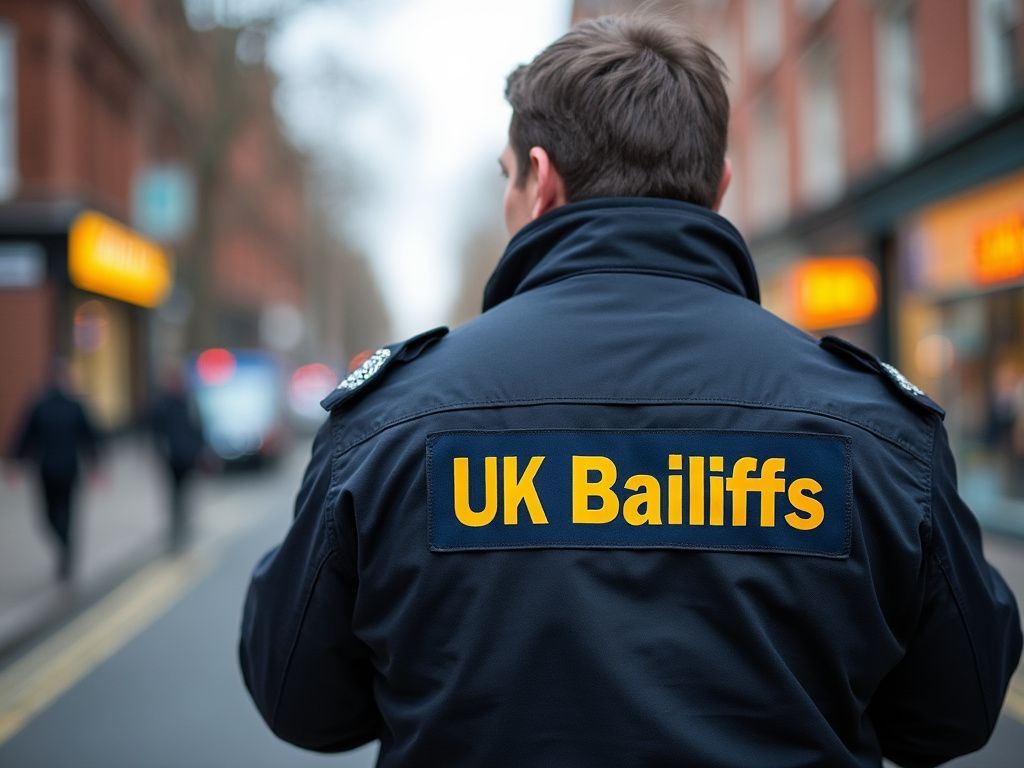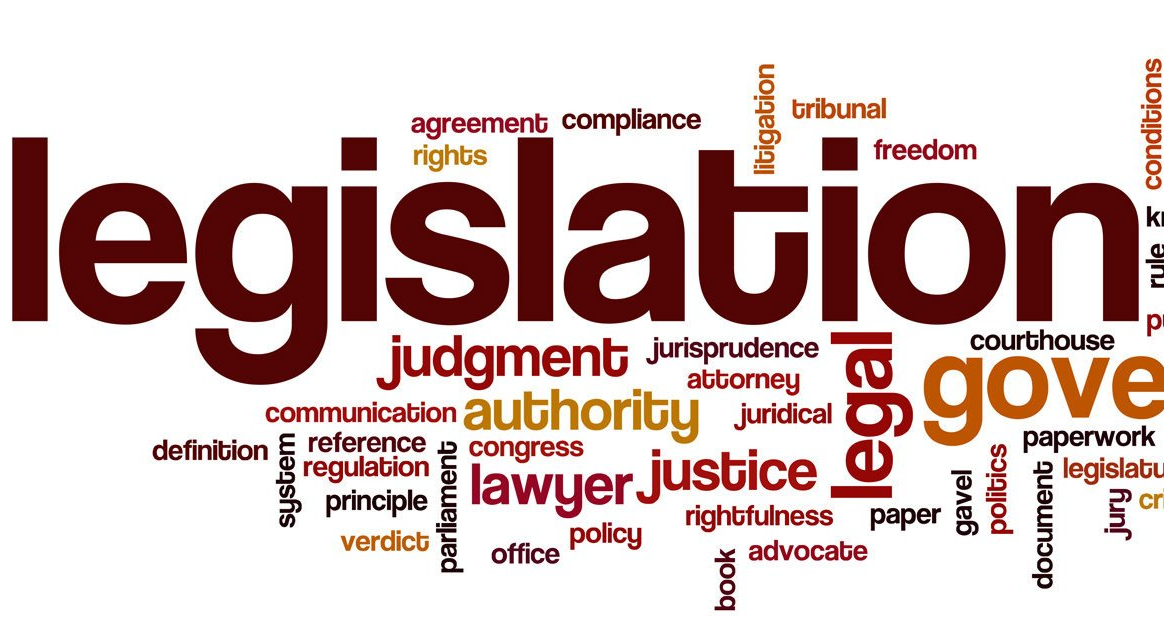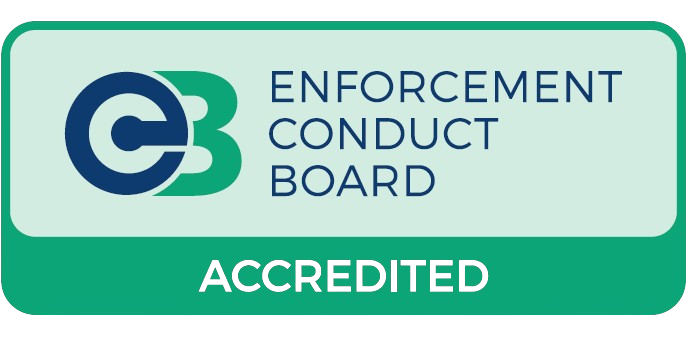Evictions | Travellers and Trespassers
Legislation Relating to Common Law Evictions in England and Wales
We explain the various laws relating to common law evictions and how bailiff companies like ours can assist.

Quick Links

The Law Relating to Evictions
Landowners in England and Wales — whether private or local authority — have the right to remove trespassers from land via either Common Law or the Court process.
Halsbury’s Laws of England
In 1907, Stanley Bond, publisher of Butterworths Law Journal, commissioned former Lord Chancellor Hardinge Giffard, the First Earl of Halsbury, to produce an authoritative legal reference: Halsbury’s Laws of England.
“If a trespasser peaceably enters or is on land, the person who is in or entitled to possession may request him to leave, and if he refuses to leave, remove him from the land using no more force than is reasonably necessary.”
This principle still applies today.
The Role of Enforcement Agents
Enforcement Agents(formerly bailiffs) may lawfully attend land without notice and request trespassers to vacate. If refused, they may evict them immediately — without a court order — using only as much force as nescessary.
Important Exception: If peaceful access cannot be gained (e.g., needing to cut locks or force entry), the Agent cannot proceed with eviction under Common Law.
The standard procedure is:
- Agents attend the site and serve notice.
- A risk assessment is conducted.
- Reasonable time is given for the trespassers to leave.
- If they fail to do so, vehicles and persons may be removed using minimal force.
Reasonable Notice & Force
The term "reasonable" is open to interpretation. Agents consider the landowner’s needs, safety, and occupier welfare.
- Notice: May mean immediate or delayed depending on context
- Force: Must be proportionate and lawful
- Examples: Avoid late-night evictions with sleeping children
Benefits of Common Law
Speed and cost: No court needed, immediate response, and often more affordable.
The Downsides
No legal action can be taken if the trespassers return the next day — though this is rare with swift enforcement.
Additional Obligations
Local authority land: Human Rights Act obligations must be considered. If children are present, liaise with social services.
Legislation for Common Law Evictions
All landowners in England and Wales—whether the land is privately owned or managed by a local authority—have the legal right to remove trespassers from their property under either Common Law or through the Court system.
In 1907, Stanley Bond of Butterworths Law Journal enlisted Lord Chancellor Hardinge Giffard to produce an authoritative reference to the legal framework: Halsbury's Laws of England.
Halsbury’s Laws of England (Paragraph 1400, Volume 45, 4th Edition)
affirms:
“If a trespasser peaceably enters or is on land, the person who is in or entitled to possession may request him to leave, and if he refuses to leave, remove him using no more force than is reasonably necessary.”
The legal guidance remains relevant today. Enforcement Agents—formerly known as bailiffs—have the authority to enter land without notice and request that trespassers and travellers leave. If they refuse, they can be removed immediately without the need for a court order.
There are legal exceptions: Agents must not force entry by cutting locks or breaking doors if peaceful access is not possible.
Typically, agents will visit the site, serve legal notice on the occupants, and conduct a full risk assessment. They also identify potential hazards or legal concerns the landowner may not be aware of before taking further steps.
Reasonable Time & Level of Force
The term “reasonable” is one of the most subjective in English law—it is undefined and its interpretation often depends on perspective.
A first-time landowner might consider "reasonable notice" to be immediate, whereas a travelling family might argue that reasonable notice means having time to find an alternative site.
“Reasonableness” is generally interpreted through the lens of a well-informed, impartial third party with equivalent knowledge acting in the same conditions.
Experienced Enforcement Agents will base their judgement on the needs of the landowner, the health and safety of everyone involved, and the welfare of those occupying the land illegally.
Key judgement scenarios include:
- Should a removal be delayed if children are sleeping at 11pm?
- Is it acceptable to wait one hour if travellers are visibly packing to leave?
Similarly, reasonable force has no precise legal definition. It is assessed on a case-by-case basis, often relying on retrospective court decisions.
As best practice, most Enforcement Agents will allow a minimum of 2 hours for travellers to leave the site. If the group is non-disruptive, a window of up to 24 hours may be deemed reasonable.
Upsides & Considerations
The Upside
One of the major benefits of Common Law eviction is speed. An Enforcement Agent can attend the site immediately after the landowner gives instruction—no court application, no extended delays.
This rapid approach also lowers costs significantly compared to the court eviction process, making it a popular option for private landowners.
The Downside
There is no lasting legal remedy under Common Law if travellers return the following day. However, repeat incidents are rare, as swift action sends a strong deterrent message.
Other Considerations
Evictions from local authority-owned land require additional caution. Article 8 of the European Convention on Human Rights (ECHR) protects the right to family and private life.
Where children are involved, Enforcement Agents may need to coordinate with social services to ensure child safety and access to appropriate support services.
Each case must be assessed on its own facts, and sensitivity is essential when vulnerable persons are present.
If you need urgent enforcement or bailiff action, visit our traveller eviction service page.
Trespasser and Traveller Eviction – Frequently Asked Questions
What is a Common Law eviction?
This refers to the landowner’s legal right to regain possession of private land from unauthorised occupiers without needing a court order, using lawful means in accordance with the tort of trespass.
Do I need a court order to remove trespassers?
No — not for open private land. A possession order is only required where the site is secured (e.g. locked buildings or gates requiring forced entry).
Who can carry out the eviction?
Either the landowner or appointed Certificated Enforcement Agents. Using experienced agents ensures safety and legal compliance under civil law.
What kind of force is permitted?
Only proportionate, non-aggressive action is allowed — such as physically guiding individuals or removing vehicles, without damage or intimidation.
How quickly can UK Bailiffs respond?
We typically deploy enforcement teams to your location within 2 hours of instruction, across England and Wales.
Is advance notice required?
Yes. We generally serve 2 to 24 hours written notice depending on the level of disruption. Notices are handed directly or fixed visibly onsite.
Can I evict trespassers myself?
While legally permitted, personal enforcement carries significant risks. We strongly recommend instructing trained agents to avoid liability or escalation.
What if they refuse to leave?
Our agents will escalate proportionately — including use of tow trucks, additional agents, or police assistance to restore possession safely.
What laws apply to this process?
Our actions are governed by civil trespass law, the Criminal Justice and Public Order Act 1994, and the Human Rights Act where applicable.
Will the police attend?
Police may attend to prevent a breach of the peace but do not usually assist unless criminal activity occurs or obstruction is involved.
What if there are children on site?
We coordinate with local safeguarding services to ensure child welfare obligations are met and documented during the eviction process.
What is the risk of excessive force?
Excessive or aggressive behaviour is illegal and may result in prosecution. Our agents use only the minimal level of force necessary to regain possession.
How do you deter re-entry?
Our 99% success rate is due to rapid deployment and persistent follow-up. Most trespassers do not return once properly evicted by enforcement agents.
What happens if I pay trespassers to leave?
This is strongly discouraged — payment creates a precedent and increases the risk of re-occupation. Enforcement offers a lawful and lasting solution.




